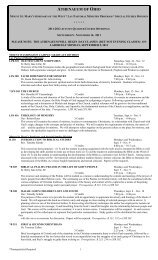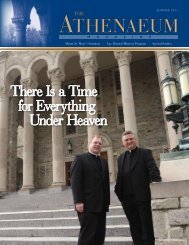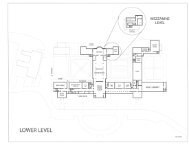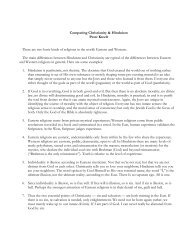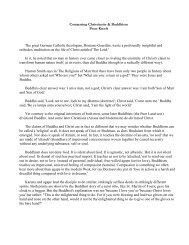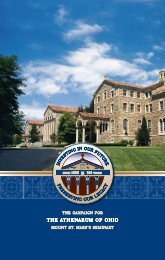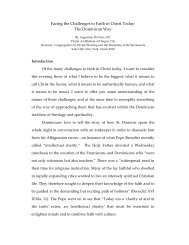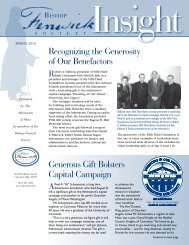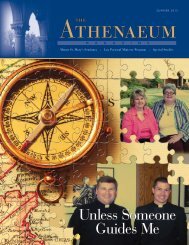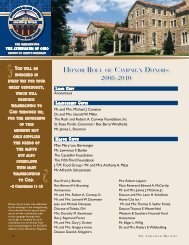Notes from Gathered for the Journey Six (6) essays David McCarthy
Notes from Gathered for the Journey Six (6) essays David McCarthy
Notes from Gathered for the Journey Six (6) essays David McCarthy
You also want an ePaper? Increase the reach of your titles
YUMPU automatically turns print PDFs into web optimized ePapers that Google loves.
What ―is‖ natural law—four (4) points:1. The natural law tradition does not say that we can ―read‖ <strong>the</strong> natural law asthough it were written on <strong>the</strong> design of <strong>the</strong> world, although some have seen it thisway.2. Natural law names a capacity <strong>for</strong> reflecting upon and reasoning about <strong>the</strong> world.It has its basis in our free and rational nature and is a process by which we makejudgments about human customs, laws, and conventions.3. It is an ongoing conversation about human history and culture with a view to seehow <strong>the</strong>se historical ―embodiments‖ ei<strong>the</strong>r enhance or undermine ourunderstanding of <strong>the</strong> human being as created <strong>for</strong> community with God. [e.g.-howdoes natural law evaluate <strong>the</strong> Internet?]4. Natural law is participation in eternal law in <strong>the</strong> manner by which we are able toreason about our humanity. We do so, not <strong>from</strong> beyond or <strong>from</strong> God‘s point ofview, but in our place and time with a view to understanding our deepest desires,that is, by understand <strong>the</strong> demands (<strong>the</strong> law) of our membership in <strong>the</strong> humanrace. (168, emphasis added)—hence, human rights root <strong>the</strong>mselves in natural law.IV. Law, Sin and Freedompp. 168 – 172Law—external and intrinsicAll human acts originate in <strong>the</strong> will and intellect of <strong>the</strong> person—each person is <strong>the</strong>principle of her or his actions.We move toward fulfillment of human life by our own actions, passions andhabits. (168, 69)―Sin‖ and ―vice‖ undermine ―our progress to our goal.‖ It is counter to what isau<strong>the</strong>ntically good <strong>for</strong> us and also counter to God‘s loving Wisdom in Law. (169)―Badness‖ of a human act, according to St. Thomas, is its failure to con<strong>for</strong>m to itsproper measure—―<strong>for</strong> Thomas, human action has two such proper measures:human reason and God‘s eternal law.‖ (169)The closest measure ―at hand‖ is human reason—judges how this act promotes orundermines au<strong>the</strong>ntic human flourishing—fulfillment—shaped by God‘s Wisdomrecognized and embraced in <strong>the</strong> process of natural law reasoning.―Set within a frame of human fulfillment, sin against God can be seen also toviolate our own good.‖ (169)The external law is God‘s commandments—helping us through grace.Sin models our character—―vice‖ becomes who I amCommitting sin is ―acting contrary to reason and to our true end in God,‖ andsuch actions dispose us ―to similar acts, and <strong>for</strong>ms ourselves into person of vicera<strong>the</strong>r than of virtue.‖Vice [habitual evil receptivity] undermines our capacity <strong>for</strong> fulfillment—it―undermines our receptivity and responsiveness to God.‖ (169)Fundamental Moral Theology Page 42 of 54Class <strong>Notes</strong> – Fa<strong>the</strong>r Michael Seger



